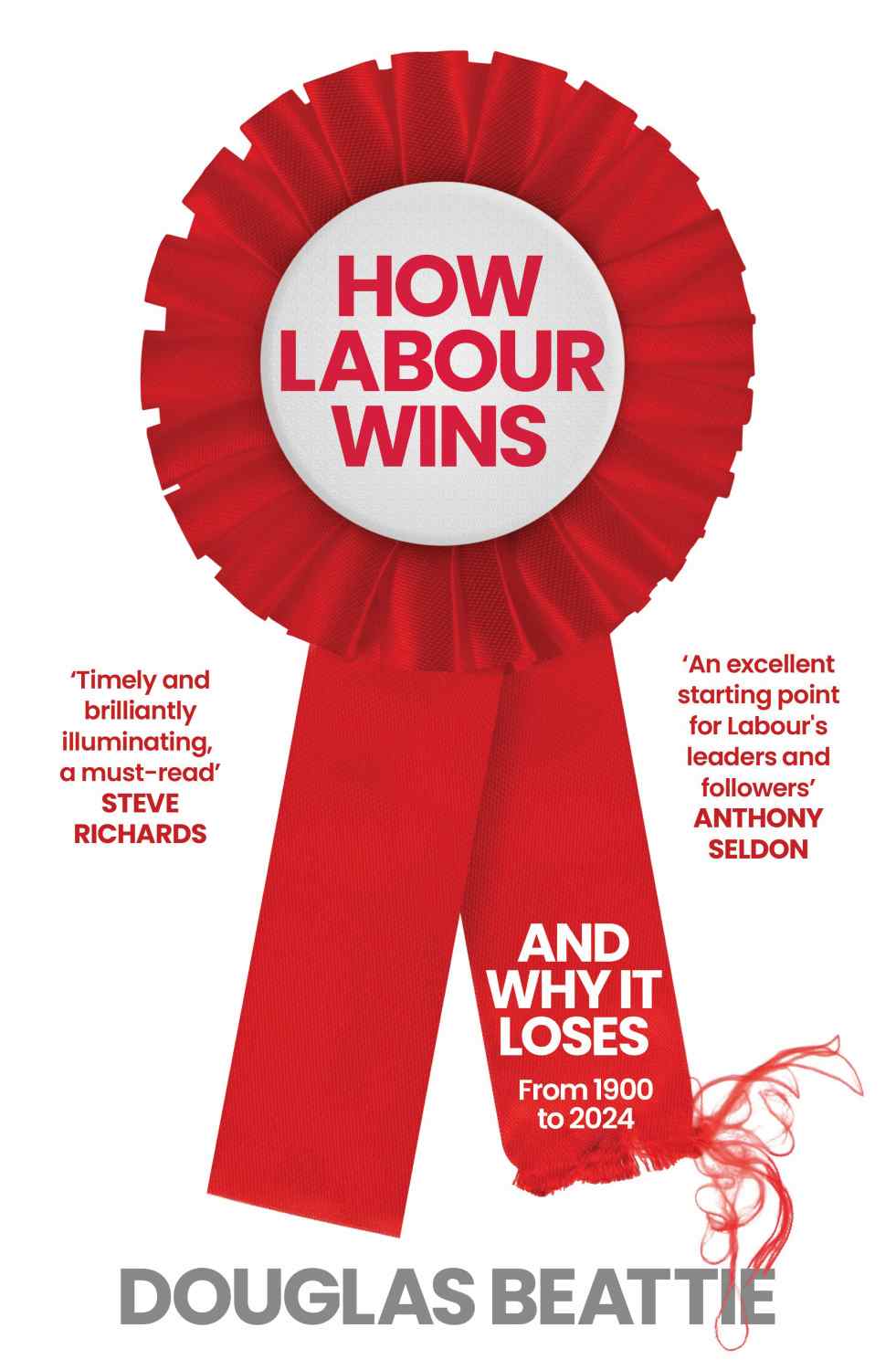Lord Davies reviews 'How Labour Wins'
March 1997: Then leader of the opposition, Tony Blair at the start of the general election campaign | Image by: Trinity Mirror / Mirrorpix / Alamy Stock Photo
4 min read
Although he may not entirely succeed in explaining why Labour wins, Douglas Beattie has succeeded in delivering an interesting and enjoyable read
This is a timely book about the Labour Party and its performance at general elections going back to 1900. That was the first occasion when a distinct Labour Party participated in the event, in the form of the Labour Representation Committee. It provides, chapter by chapter, a summary of Labour’s performance at each of the 32 general elections that followed, including the most recent, last year.
Its 390 pages, including references and a useful index, allows an average of 11 pages per election, including a brief summary of the outcome. But this is not really a work of reference. It provides the author’s ideas about the party’s performance in successive general elections and, as indicated by the title, aims to explain how it wins and why it loses.
I enjoyed reading the book, even as someone who is familiar with the territory. Being an active participant in nearly half of the elections that are covered here, as I have been, does not always provide one with much of an insight into what has happened, other than in your local patch. Nevertheless, there are no real surprises. Sometimes it is all too familiar, with the author recording, for example, that for the 1906 election the then-leader, Ramsay MacDonald, ensured that the selection of candidates was controlled from the centre by the ruling national executive committee, which led to a candidate body that was not overtly radically socialist.
The book touches on some might-have-beens, including the question of whether John Smith would have won the 1997 election, had he survived
I was particularly interested in what it says about the 1970 election – what was, for me, the first general election loss as a party member. The author describes Labour’s loss as being a great surprise. However the preceding years saw an appalling series of local election results for Labour, including losing control of London boroughs such as Lambeth and Islington. Even in March of 1970 my recollection is great pessimism amongst the party faithful about our prospects. The surprise to me was that we did as well as we did.
The book touches on some might-have-beens, including the question of whether John Smith would have won the 1997 election, had he survived. Would we have had “New Labour” in the same way it played out under Tony Blair’s leadership? This provides an interesting example of the author’s choice of witnesses to provide insights, particularly for the more recent elections. I guess that having Clare Short’s views on 1997 provides a different picture to some others. John McDonnell’s reflections on the outcome in 2019 also go against much of the received wisdom.
 For the 2024 election we have Thangam Debbonaire, the defeated Labour candidate in Bristol West, who says: “For those of us who lost… there are lessons to learn electorally, politically and in terms of public discourse.” This offers an interesting take on the 2024 result, given that the dominant story has been that it was such a great victory for Labour.
For the 2024 election we have Thangam Debbonaire, the defeated Labour candidate in Bristol West, who says: “For those of us who lost… there are lessons to learn electorally, politically and in terms of public discourse.” This offers an interesting take on the 2024 result, given that the dominant story has been that it was such a great victory for Labour.
So, has the author succeeded in his aim of explaining why Labour wins or loses? Not entirely. What you discover is that sometimes politics is simply about opportunity. Stuff happens and there is not always anything you can do about it.
However, the author says the Labour Party “has prospered when it has read the mood of the country yet has used that to shape popular policies which emancipate people, rather than pandering to populism. And it has done so, above all, when it has remained true to its roots”. Clearly the preeminent example of where this has been true was 1945. I leave it to the readers to decide when else it has been true.
Lord Davies of Brixton is a Labour peer
How Labour Wins (And Why It Loses): From 1900 to 2024
By: Douglas Beattie
Publisher: Elliott & Thompson
